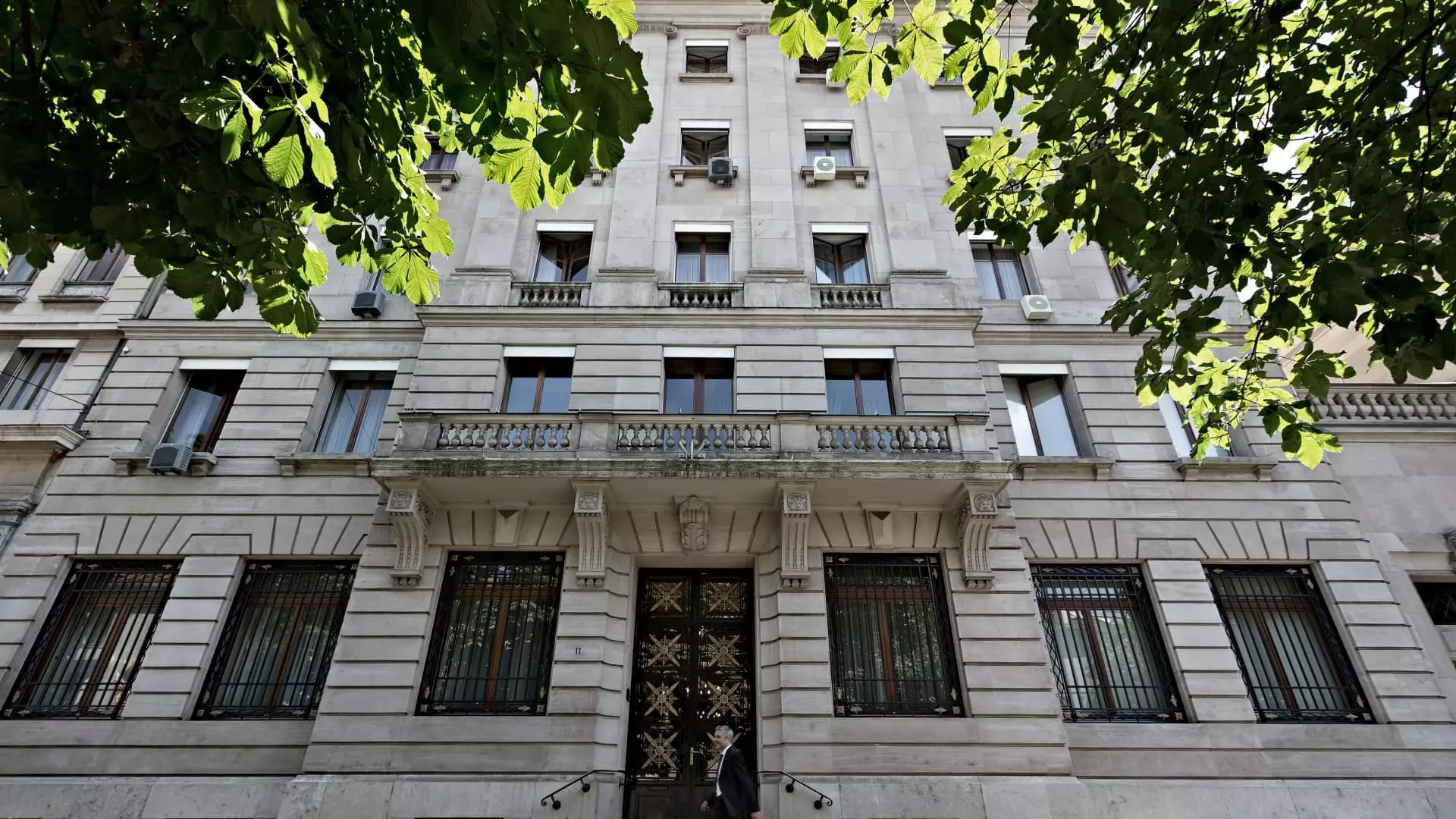Lombard Odier, one of the prestigious private banks in Switzerland, has found itself embroiled in a significant legal quagmire with the indictment by Swiss prosecutors for aggravated money laundering. This development marks a stark turning point for a financial institution with roots tracing back to 1796. The indictment comes from the Office of the Attorney General of Switzerland (OAG), signaling the institution’s ongoing struggle to uphold its revered reputation amidst serious allegations of misconduct.
The OAG has filed formal charges against Lombard Odier and a former employee, pointing to their involvement in concealing illicit proceeds allegedly linked to the activities of Gulnara Karimova. Karimova, who is the daughter of the late Islam Karimov, the former president of Uzbekistan, is accused of orchestrating a vast money-laundering scheme that exploited Switzerland’s banking system from 2005 to 2012. The intricate web of transactions in question involves substantial sums believed to have been funneled through Lombard Odier’s accounts, generating doubts about the bank’s due diligence and compliance protocols.
The case exposes a greater narrative concerning the accountability of financial institutions in preventing the laundering of criminal proceeds. Since the opening of investigations in 2016, Lombard Odier has been under scrutiny, particularly as allegations surfaced regarding its capacity to mitigate risks associated with its clientele. The criminal activities purportedly connected to “The Office” raise critical questions about the effectiveness of current regulations in safeguarding against financial malfeasance within prestigious banking institutions.
In light of the serious charges, Lombard Odier firmly denies any wrongdoing, claiming that the OAG’s actions are unfounded. The bank emphasizes its commitment to transparency, highlighting that it proactively reported suspicions to Swiss authorities, indicating an awareness of potential issues within its operations. Yet, this argument may be undermined by the severe nature of the allegations posed against it, implying systemic failures in monitoring and compliance mechanisms.
Lombard Odier’s indictment raises urgent questions about the integrity and oversight of private banks, particularly in jurisdictions known for banking secrecy and regulatory leniency. The case not only jeopardizes Lombard Odier’s extensive history but also emphasizes the vital need for stricter regulatory frameworks to prevent financial institutions from becoming unwitting enablers of crime. As the world of finance evolves, the lessons learned from this case could guide future investigations and financial practices, ensuring that such lapses do not recur.
As the legal proceedings unfold, Lombard Odier is set to face considerable reputational risks and potential financial penalties. The outcome could shape the future of the bank and highlight the necessity for comprehensive reforms in the oversight of financial institutions. Time will tell whether Lombard Odier can reclaim its standing in the financial world or if it will be another cautionary tale of how even the most venerable institutions can falter under the weight of serious allegations.

